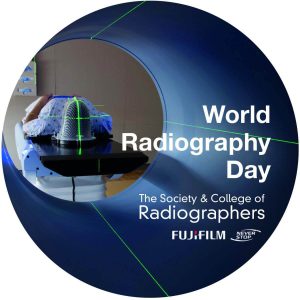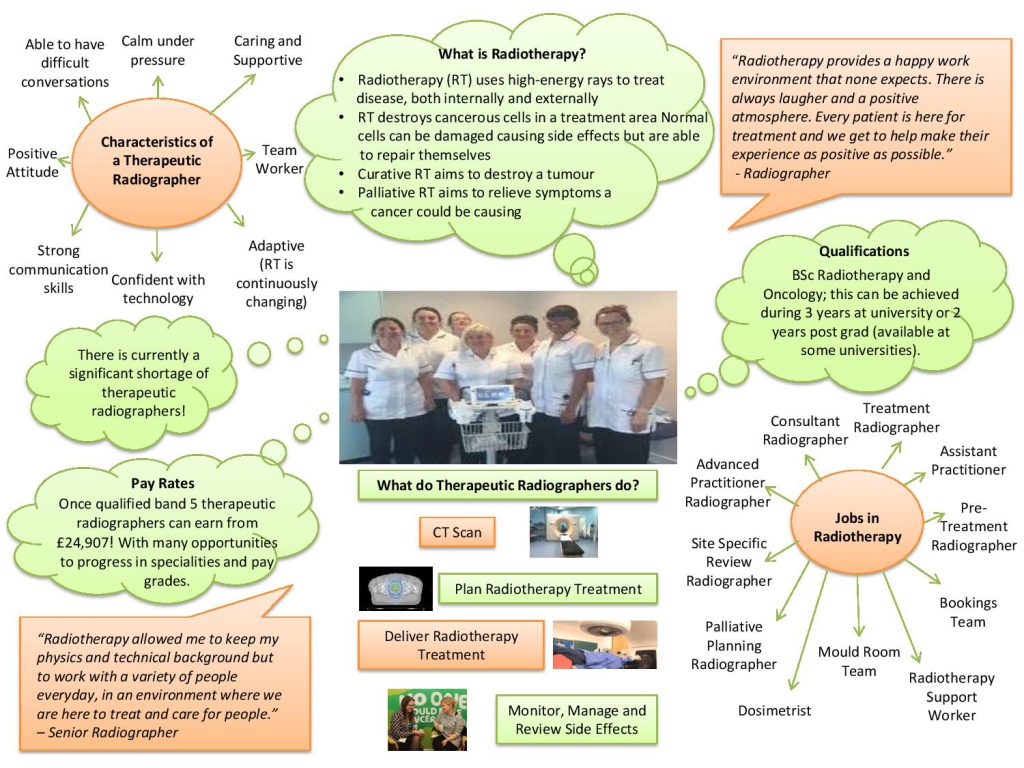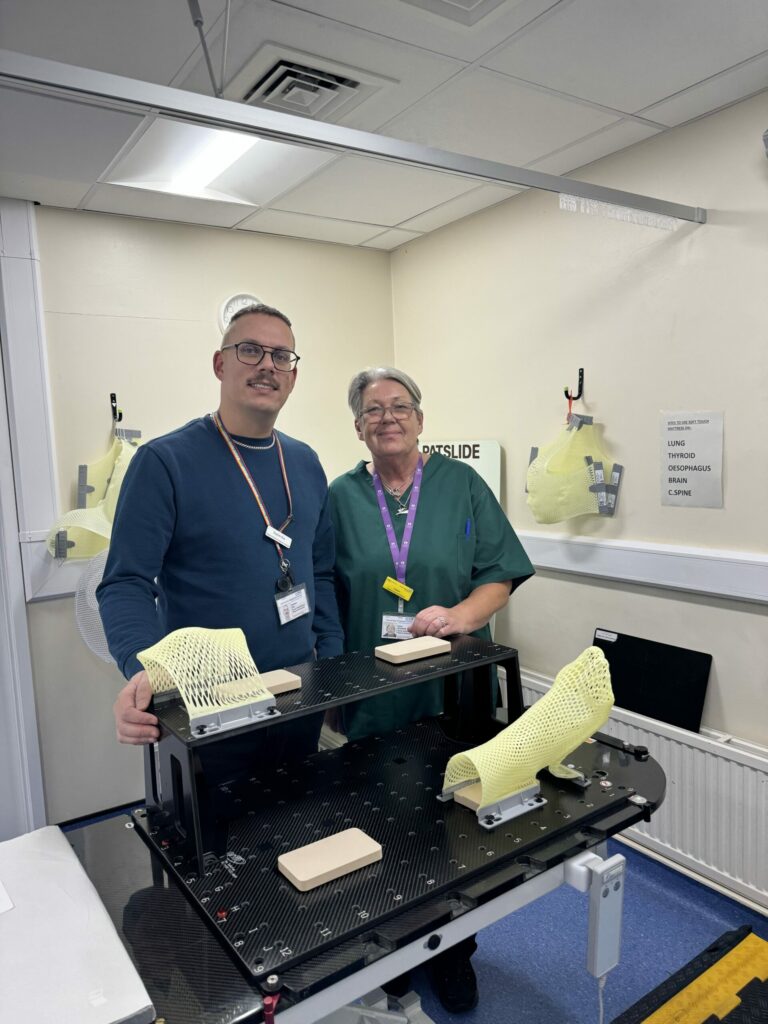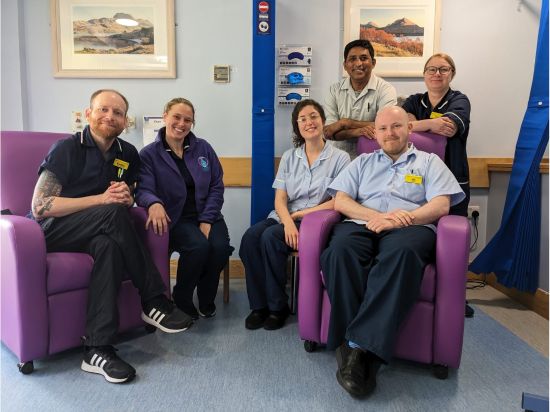 World Radiography Day is celebrated on 8 November each year and marks the anniversary of the discovery of X-rays in 1895. The purpose of this day is to raise public awareness of Radiographic imaging and therapy, which play a crucial role in the diagnosis and the treatment of patients and, most importantly, ensuring radiation is kept to the minimum required, hence improving the quality of patient care.
World Radiography Day is celebrated on 8 November each year and marks the anniversary of the discovery of X-rays in 1895. The purpose of this day is to raise public awareness of Radiographic imaging and therapy, which play a crucial role in the diagnosis and the treatment of patients and, most importantly, ensuring radiation is kept to the minimum required, hence improving the quality of patient care.
Radiographers worldwide use the day and the days around the date to promote Radiography as a career, as a vital contribution to modern healthcare, and as an opportunity to increase public awareness of diagnostic imaging and radiation therapy.
Radiographers can either be diagnostic, ie using radioactive x-rays to i.e. CT scanners etc which create images of the body that can be used to diagnose disease or Therapeutic, where radiation is delivered to treat a patient by destroying cancer cells.
The Sussex Cancer Fund supports three therapeutic Radiography clinics, Brighton, Preston Park & Eastbourne and you can read more about what we do for them in our blog post: How We help Patients Receiving Radiotherapy Treatment in Sussex. The centres are extremely busy with up to 300 patients a day being treated, employing more than 50 Radiographers.
Across the Brighton & Sussex University Hospital NHS trust, there are 6 Linear accelerators delivering Therapeutic Radiotherapy Treatment to patients in Sussex.
To find out more about Radiography and the team we spent some time at the Sussex Cancer Centre to find out more but we wanted to make sure we didn’t take up any more of their precious time, so we arranged to go when one of their machines was having its annual maintenance checks.
Jean Tremlett Senior Therapeutic Radiographer
My time with the team started with Jean Tremlett who is not only is a Senior Radiographer but also Deputy Chairman of the Sussex Cancer Fund. Jean took me on a tour of some of the rooms currently not in use, including some of the equipment that the Sussex Cancer Fund has provided. The tour also included a behind the scenes look at one of the retired Linear Accelerators, a complicated mass of wiring, hydraulics and computer equipment that few get to see.
The Sussex Cancer Fund some years ago provided a music system, to help make patients more at ease. It was good to hear from Jean that patients make good use of it requesting everything from classical music to Bob Marley.
After my tour, Jean introduced me to three Radiographers from the team, and I was given the opportunity to interview them about how they chose a career in Therapeutic Radiography and what advice they would give to anyone considering it as a career. I also got the chance to ask about how the Sussex Cancer Fund was making difference to the team and their patients.
Abdillahi Adam Senior Therapeutic Radiographer
Abdillahi is naturally a ‘Techy’ person and was leaning towards a career in a computer science type role. However, he knew he also wanted human interaction and to do some good. His sister is a nurse and she suggested that this was a role that would combine both of these things. Abdillahi has been with the Trust for 3.5 years since his graduation in 2016 from a 3-year access course in Bristol. When asked what he liked best about the job, he simply replied “making a tough time a bit better for patients”.
For anyone considering this career path, Abdillahi said: “It is a very rewarding job, with good progression and many new and exciting opportunities.”
For Abdillahi, one of the major ways the Sussex Cancer Fund has helped the centre is through the provision of bladder scanners. You can read more about our bladder scanners here but essentially the bladder scanners help determine that a patients bladder is full enough ready for treatment. This saves time as a patient would previously be told to go away and drink some more water before a treatment session could commence. Now patients are scanned before going in for treatment saving valuable set-up time. It also means they limit the amount of radiation a patient received as there is a reduction in the need for imaging scans
Sophia Topple Senior Therapeutic Radiographer
Sophia has been with the Trust for 7 years and enjoys the interaction with people both patients and the team. Sophia chose therapeutic radiotherapy over diagnostic radiotherapy as it gives the chance to really get to know the patients. Some patients may come for treatment over several weeks and often they will see the same members of a team and a rapport develops further helping to put patients at ease. Sophia was lucky enough to get a placement with Elekta, one of the major manufacturers of Linear Accelerators prior to studying Radiotherapy and Oncology in Hertfordshire.
I asked Sophia what she would say to anyone considering a role in Radiography, she said ” People often think it would be a sad job but I feel it is actually one that is full of positivity. Yes, there are some sad times but generally, it is mostly a happy place. I get to know patients and get to help them and for many, they are at the end of their treatment, with Radiotherapy being the final stage. I get to help so many people every day and radiotherapy really is the gold standard treatment. For most it is curative for some it is palliative but even so it is still a positive experience with the treatment prolonging life.”
As well as the bladder scanners, Sophia said “That it’s often the everyday things the Sussex Cancer Fund provides that have the most impact.” You can read more about what the Sussex Cancer Fund does in our blog post ‘How We help Patients Receiving Radiotherapy Treatment in Sussex’.
Molly Deveney Therapeutic Radiographer
Molly is originally from and studied in Northern Ireland and has been with the Trust for nearly a year. Molly had always wanted to work in healthcare and considered going into nursing but it was the mix between science and patient care that helped her choose Therapeutic Radiography.
Molley said, “The nature of the treatment means seeing some patients every day so that you often journey with them and help them through part of their treatment. For anyone considering choosing to be a Radiographer, I would say definitely do it, it is the most rewarding job ever and every day I am grateful to be doing the job.”
Again I asked about how the Sussex Cancer Fund makes a difference to the Radiotherapy Centre, Molly said: ” You don’t realise how much even the small things make a big difference, the support the Sussex Cancer Fund gives us makes our jobs run more smoothly and in turn makes the patient experience as smooth as possible.”
Radiography As A Career
While World Radiographers Day is designed to celebrate and thank all our Radiographers, it is also designed to promote Radiography as a career. Sophia Topple, has kindly given the Sussex Cancer Fund permission to show a poster she designed as part of a recent recruitment campaign that expertly details what is involved in a career in Radiography.

The one thing that is so evident from our visit to the Radiography department was the sense of positivity and joy that comes from the team, all we spoke to said that the best thing about their roles was the interaction and getting to know their patients. Therapeutic Radiography is often given as a final treatment stage, as a final mopping up of rogue cancer cells or used to prolong and give an improved quality of life as part of palliative care but however, it is used it is delivered by an exceptional team with a desire to to make the experience as comfortable as possible and provide the best patient care.
Thank you to all the team that contributed to our investigation into Radiography in Sussex, with a special mention to Jean Tremlett and Victoria Peirce that helped make it possible for us to visit, I know we have only scratched the surface but thank you for all you do.
If you would like to help the Sussex Cancer Fund with more support for the Teams and cancer patients in Sussex please use the button below.
[supsystic-gallery id=4]


